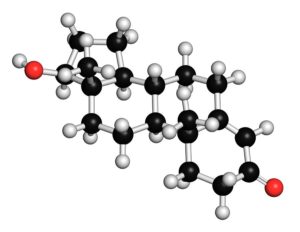Testosterone therapy has gained popularity in recent years as a potential solution for individuals experiencing low levels of testosterone. Known as testosterone replacement therapy (TRT), it involves the administration of exogenous testosterone to help restore hormone balance and alleviate symptoms associated with low testosterone. However, the decision to start or stop testosterone therapy is not one to be taken lightly. In this article, we will discuss the benefits and drawbacks of both starting and stopping testosterone therapy, as well as the impact on physical and mental well-being and the potential risks involved. It is important to note that personalized medical guidance should be sought throughout the treatment journey to ensure optimal outcomes and minimize any potential risks.
Starting Testosterone Therapy: Pros and Cons
Starting testosterone therapy can have numerous benefits for individuals with low testosterone levels. One of the most significant advantages is the improvement in overall well-being. Testosterone plays a crucial role in various bodily functions, including muscle strength, bone density, mood regulation, and cognitive function. By restoring testosterone levels to a normal range, individuals may experience increased energy, reduced fatigue, enhanced mood, improved libido, and better cognitive function.
In addition to these physical and mental benefits, testosterone therapy can also aid in the prevention of certain health conditions. Studies have shown that individuals with low testosterone may be at a higher risk of developing cardiovascular diseases, diabetes, and osteoporosis. By maintaining optimal testosterone levels, the risk of these conditions can potentially be lowered.
However, it is essential to weigh these benefits against the potential drawbacks when considering testosterone therapy. One limitation is that testosterone therapy may not be suitable for everyone, particularly individuals with a history of certain medical conditions such as prostate cancer or severe heart problems. It is crucial to undergo a thorough medical evaluation and consult with a healthcare professional before starting testosterone therapy to ensure safety and appropriateness.

Stopping Testosterone Therapy: Pros and Cons
While testosterone therapy can provide significant benefits, there are situations where individuals might consider stopping or discontinuing the treatment. For example, some individuals may achieve their desired outcomes and no longer feel the need for ongoing therapy. Others may experience side effects or complications that prompt them to reevaluate their treatment.
Stopping testosterone therapy can have both physical and psychological implications. Physically, some individuals may experience a decline in the benefits they obtained while on the therapy, such as a decrease in muscle mass, strength, and bone density. It is crucial to note that these changes may not be immediate and could take time to manifest.
Psychologically, individuals who have undergone gender transition using testosterone might face unique challenges if they decide to stop hormone therapy. For many, hormone therapy is an integral part of aligning their physical appearance with their gender identity. Ceasing testosterone therapy may result in the re-emergence of gender dysphoria or dissatisfaction with their body. In such cases, alternative approaches such as hormone blockers or alternative hormone therapies may need to be explored to ensure that desired outcomes are maintained.
The decision to stop testosterone therapy should not be made independently but rather in consultation with a healthcare professional. Abruptly stopping testosterone therapy can lead to withdrawal symptoms or hormone imbalances, which can negatively impact physical and mental well-being. Medical guidance is essential to ensure a safe and gradual reduction of testosterone levels while monitoring for any side effects or complications.
Conclusion
Testosterone therapy can be a game-changer for individuals with low testosterone levels, providing numerous benefits for physical and mental well-being. However, the decision to start or stop testosterone therapy should be made after careful consideration of the pros and cons. Personalized medical guidance is vital throughout the treatment journey to ensure optimal outcomes and minimize any potential risks. For individuals undergoing gender transition using testosterone, the implications of stopping hormone therapy should be carefully explored to maintain desired outcomes and well-being.
Natural Testosterone supplements are available for cases that are not severe. Click Here